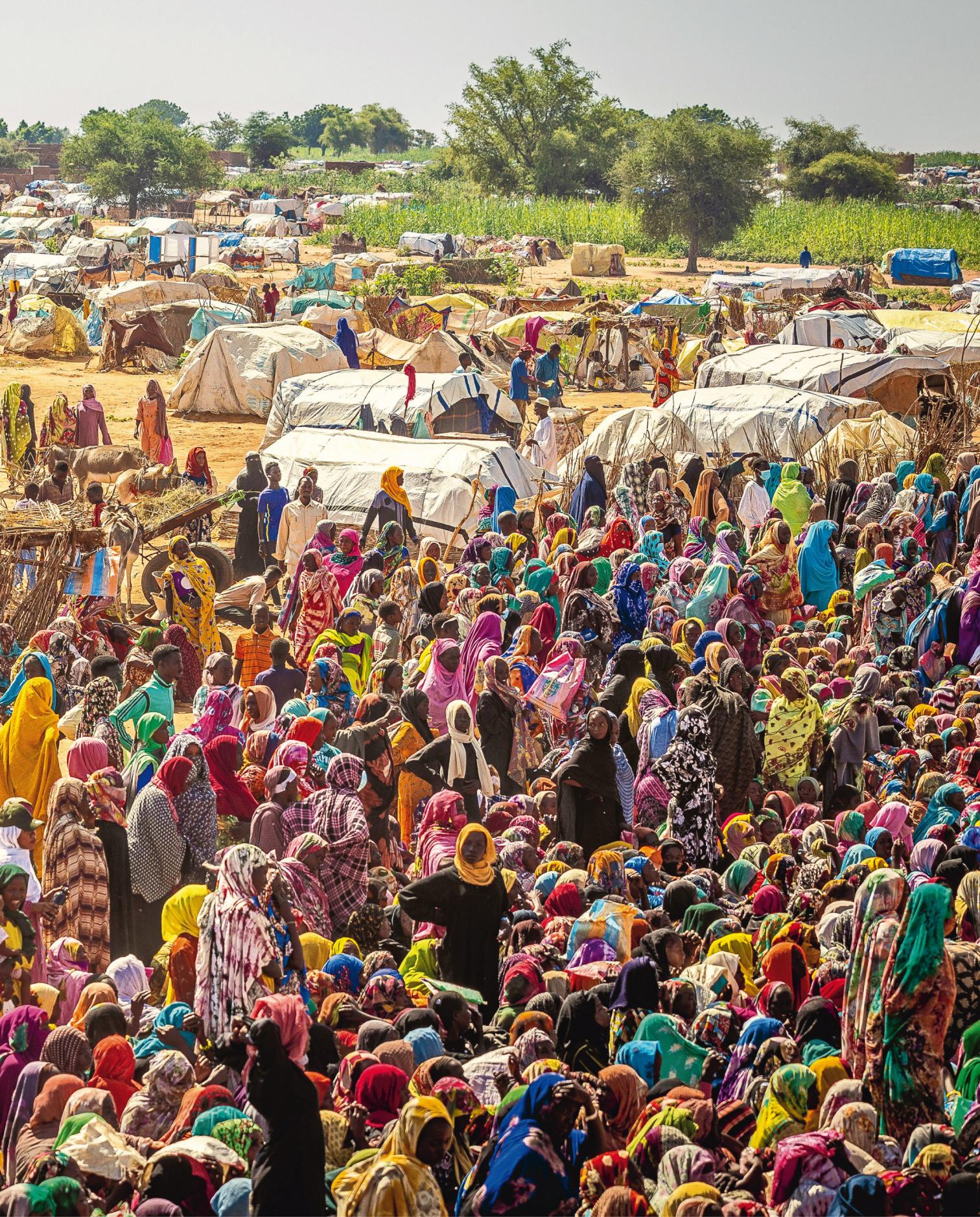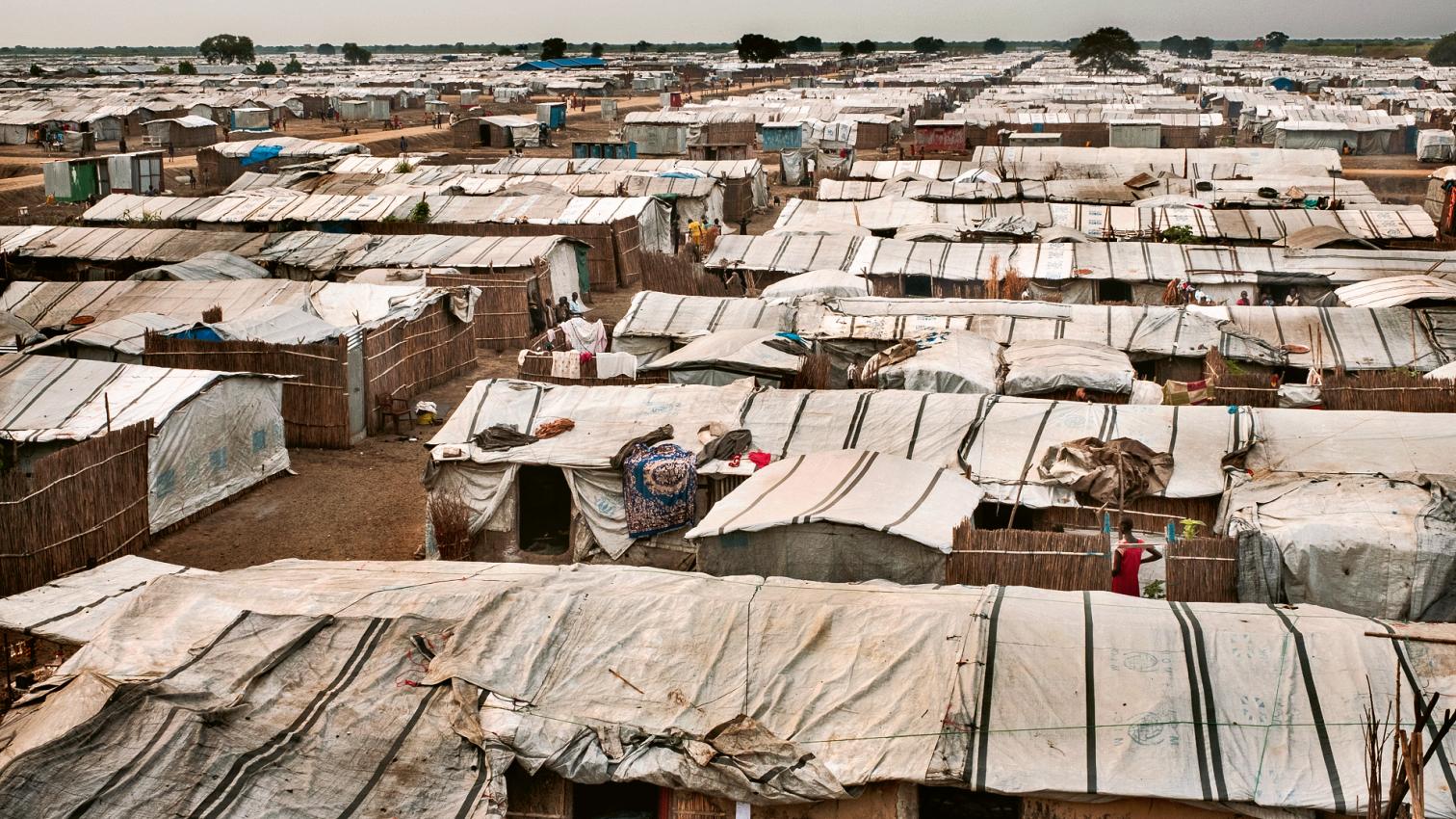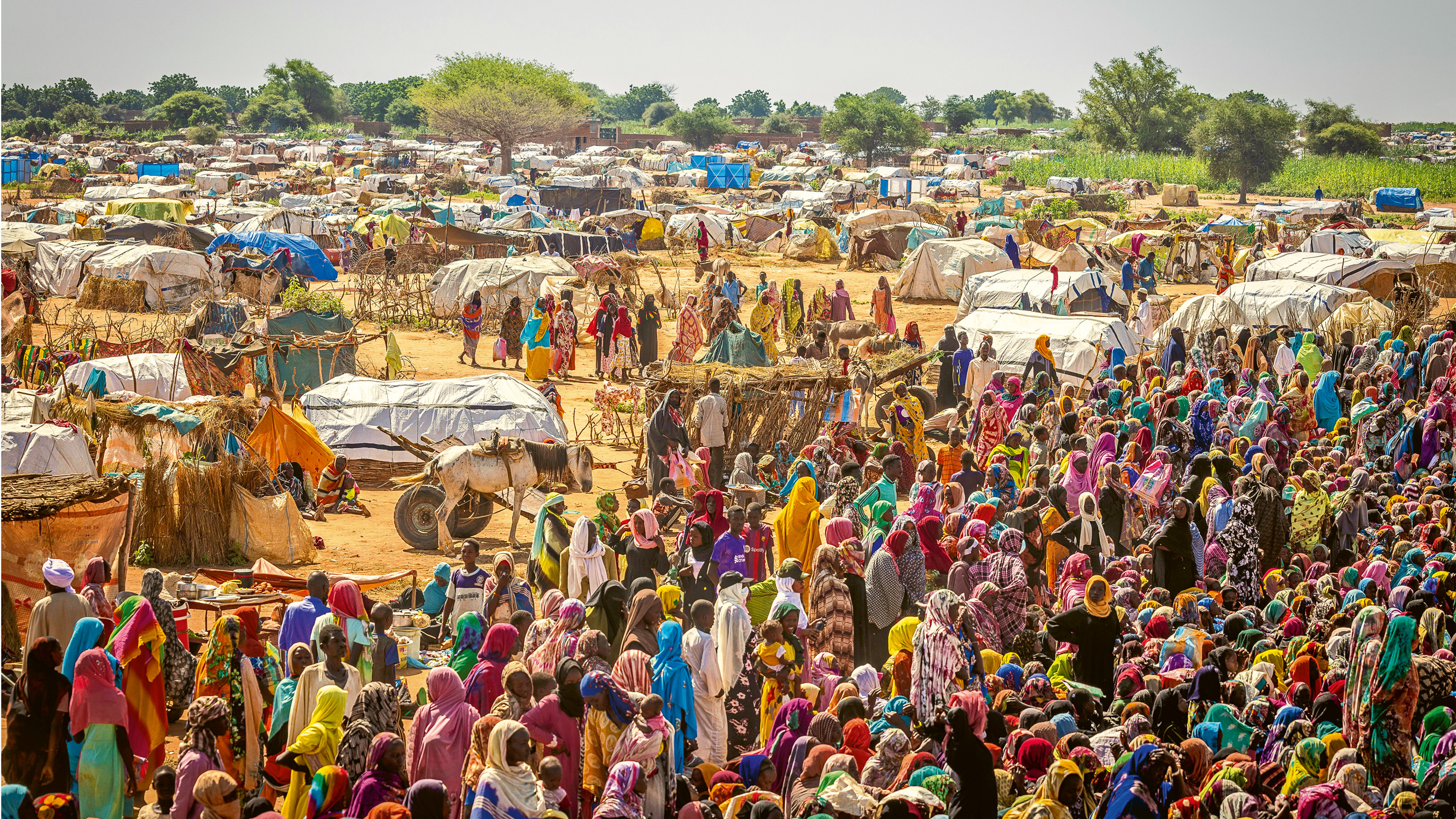
Refugee camp in Adre (Chad)
Blinded by the war flashes in Ukraine and the Middle East, we fail to see the agony of Sudan. The outcome of the conflict in Ukraine is very important for Europeans, and uncertain due to cracks in the support of the country in the East of the continent, aside from the risk of Trump’s return to the White House. The destruction of Gaza by the Israel army, which has responded to the barbaric attack of Hamas by dropping 70,000 tons of bombs on the Strip, and to the provocations of Hezbollah and Iran by extending the war to Lebanon, has awakened in the world the ominous ghosts of anti-Semitism and Islamophobia. Neither of these disasters, however, has the dimension in human lives of the civil war in Sudan, where the devastation of cities, the displacement of populations, and the worst famine in decades threaten to cause over two million deaths in the coming months. The Economist has devoted a long report to the conflict, which it considers the world’s worst humanitarian crisis.
The continent’s third largest country is razed by the combats between rival armies, the Sudanese Armed Forces and the Rapid Support Forces, both led by warlords with no significant ideological or ethnic differences, and with no other goal than seizing the spoils of the conflict. The capital city of Khartoum is in ruins and, according to the British weekly, the graveyards where up to 150,000 victims pile up can be distinguished from the air. More than 10 million people have had to flee from their homes, and survive in refugee camps, with barely any food after fires burned fields and crops. Both armies recruit children, massacre civilians, and use rape and starvation as war weapons. The Darfur genocide in 2003 or the secession of South Sudan in 2011 caused hundreds of thousands of victims, but the current tragedy can be even larger, and is happening now far from the screens of a world besieged by multiple crises, and which has now condemned Sudan’s suffering to silence.
The Emirates as well as Iran and Egypt arm the contenders, and while Russia, Saudi Arabia, Turkey, or Qatar intervene in the pursuit of their own interests, the slaughter in Sudan exports refugees and mercenaries to bordering countries like Chad, Ethiopia, or Libya, creating a geopolitical crisis that can cause waves of destabilization on three continents. The impact in Europe is already considerable – 60% of those camped in Calais are Sudanese – and can exceed the migratory shocks of the wars in Syria and Libya, at a time when this is a central issue on the political agenda of many EU countries. Josep Borrell polemically described our continent as a garden surrounded by jungle, deploring that in more and more parts of the world the law of the jungle prevails, which is none other than the will of the strongest. But the privilege of living under the empire of law cannot lead the inhabitants of this rhetorical garden to turn their backs on those who suffer, ignored in a wretched land where the only law is that of arms.

Refugee camp in Adre Bentiu (South Sudan)







